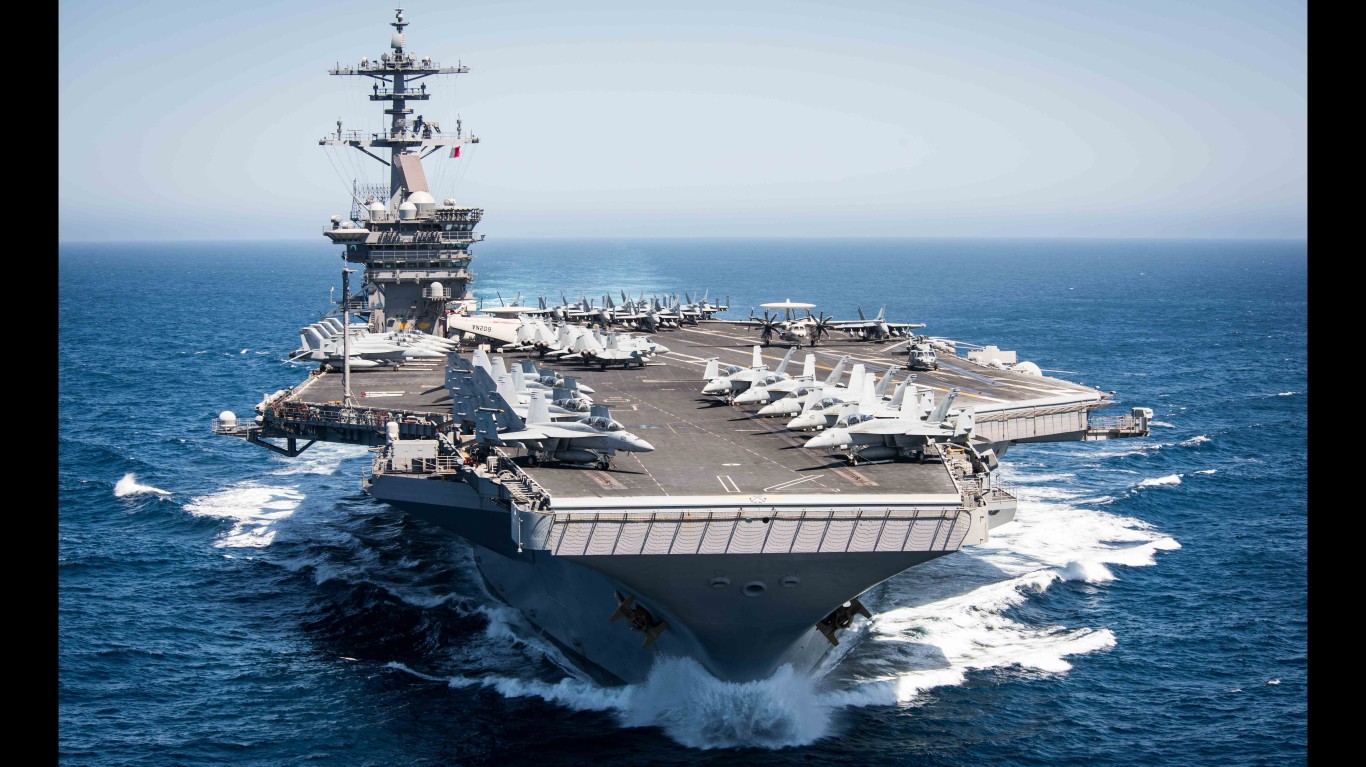
The U.S. Navy relies heavily on its Nimitz-class aircraft carriers which were introduced to the service roughly 50 years ago. Even at this advanced age, these aircraft carriers are fairly formidable and often deployed to conflict zones with their strike groups to stabilize these regions. However, as these carriers are reaching the end of their service life, the U.S. Navy intends to replace them with the Ford-class supercarriers.
The Nimitz-class carriers are still considered the crown jewels of the U.S. Navy but they are up for replacement in the coming years. The USS John F. Kennedy and USS Enterprise are two of the Ford-class carriers that are currently under construction and slotted to replace a couple of the Nimitz-class aircraft carriers on a one for one basis. (These are all 66 aircraft carriers in U.S. Navy history.)
Outside of the Nimitz-class, there is a handful of other aging naval vessels within the U.S. fleet that are looking to be decommissioned in the coming years. Older submarines from the Cold War era and some littoral combat ships are on the chopping block as well, but for now they are still in service.
To determine America’s oldest warships, 24/7 Wall St. reviewed the Naval Vessel Register directory of commissioned ships in the U.S. and cross-referenced with data from the World Directory of Modern Military Warships regarding the class or type of each warship. We compiled data on all ships and submarines — 25 in total — that have been commissioned in the service of the U.S. Navy for 35 years or more and ranked them by age.
Currently, the majority of the U.S. Navy is made up of destroyers and submarines which together account for over 50% of the fleet. Outside of these vessels, the fleet consists of cruisers, littoral combat ships, and amphibious assault ships. (These are the most highly decorated U.S. Navy ships of World War II.)
Here is a look at the oldest ships and submarines in the U.S. Navy:
25. USS Pasadena (SSN-752)
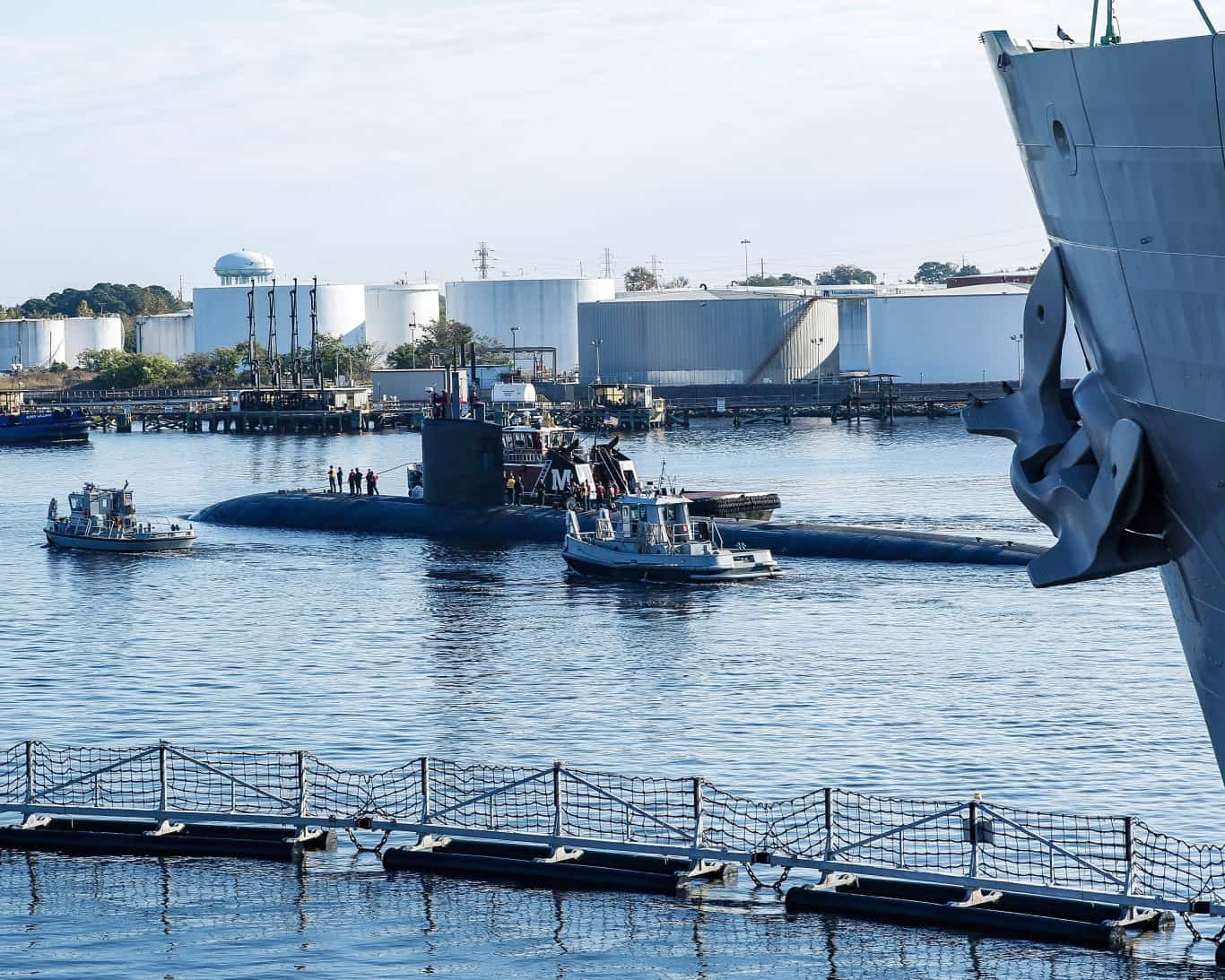
- Commission date: February 11, 1989
- Type: Attack submarine
- Class: Los Angeles-class
24. USS Princeton (CG-59)
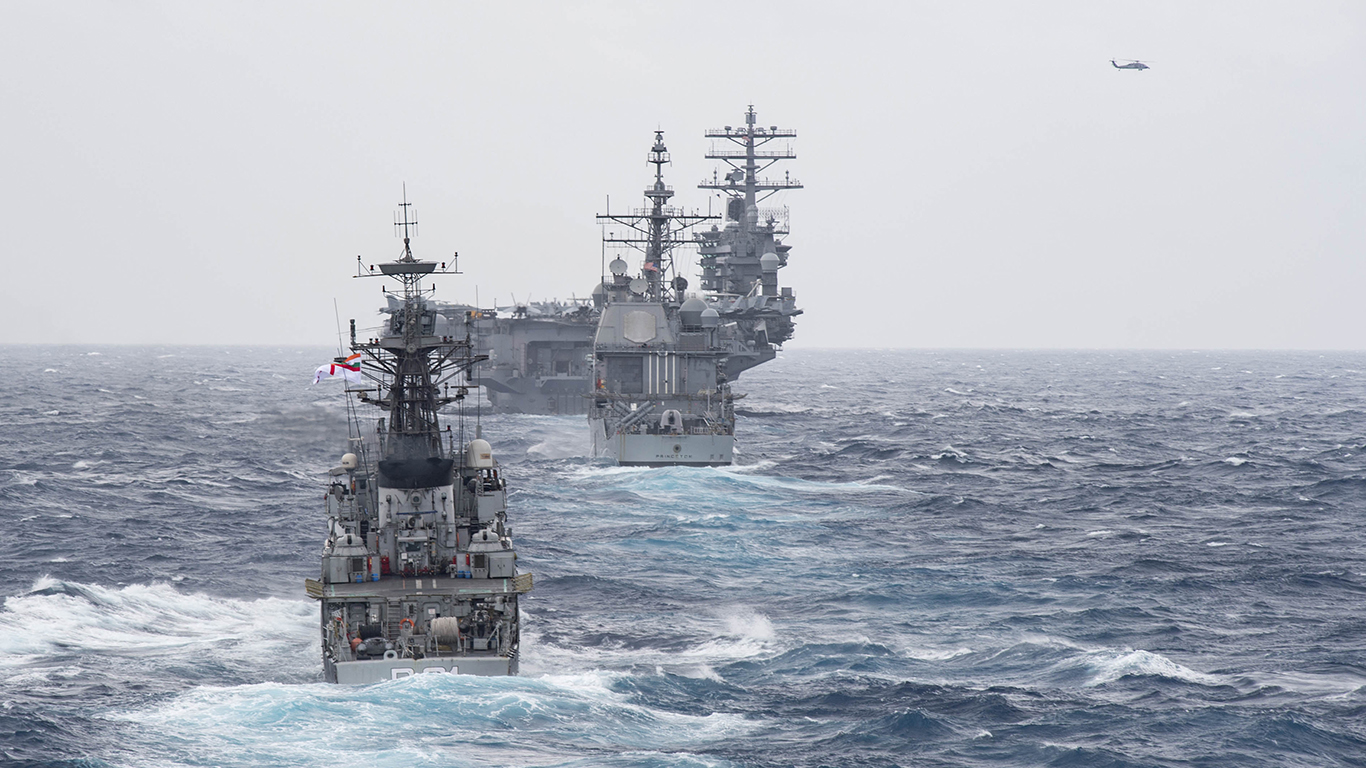
- Commission date: February 11, 1989
- Type: Cruiser
- Class: Ticonderoga-class
23. USS Tennessee (SSBN-734)
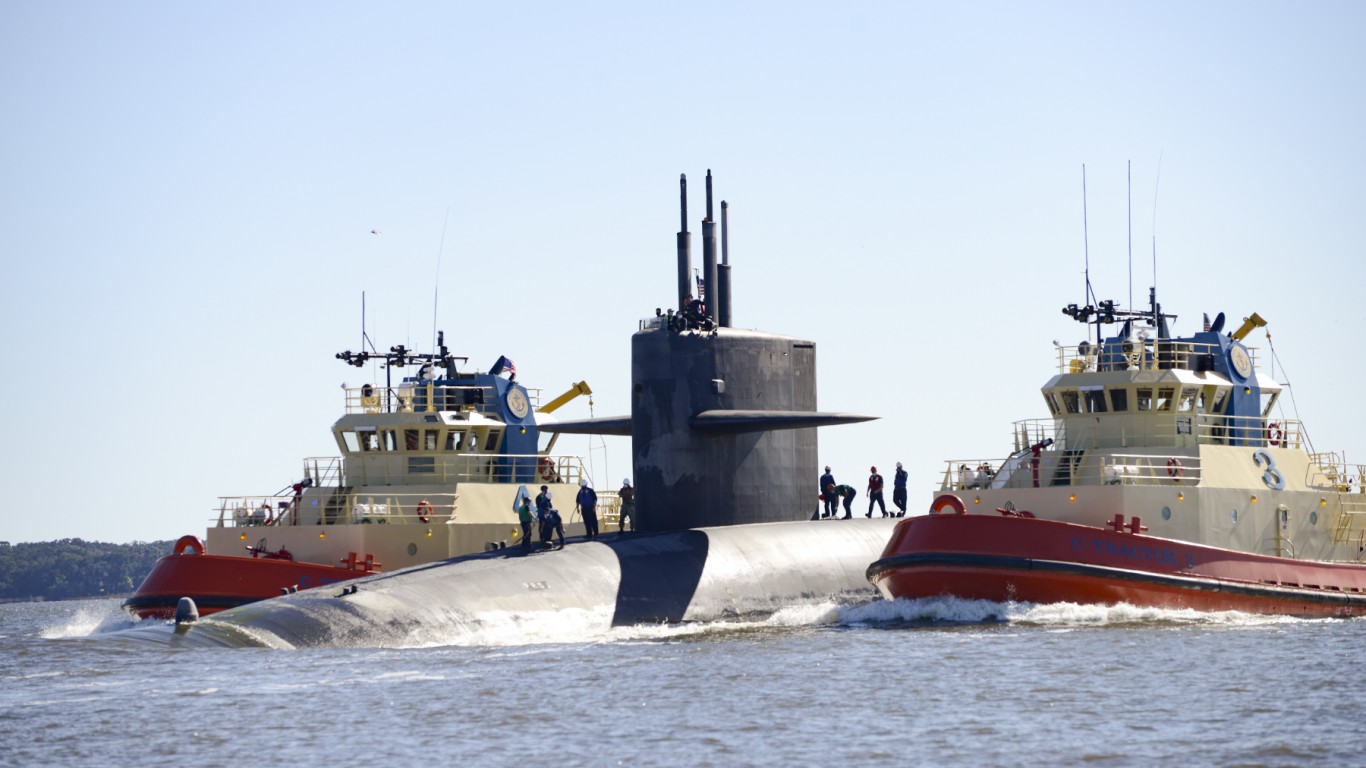
- Commission date: December 17, 1988
- Type: Ballistic missile submarine
- Class: Ohio-class
22. USS San Juan (SSN-751)
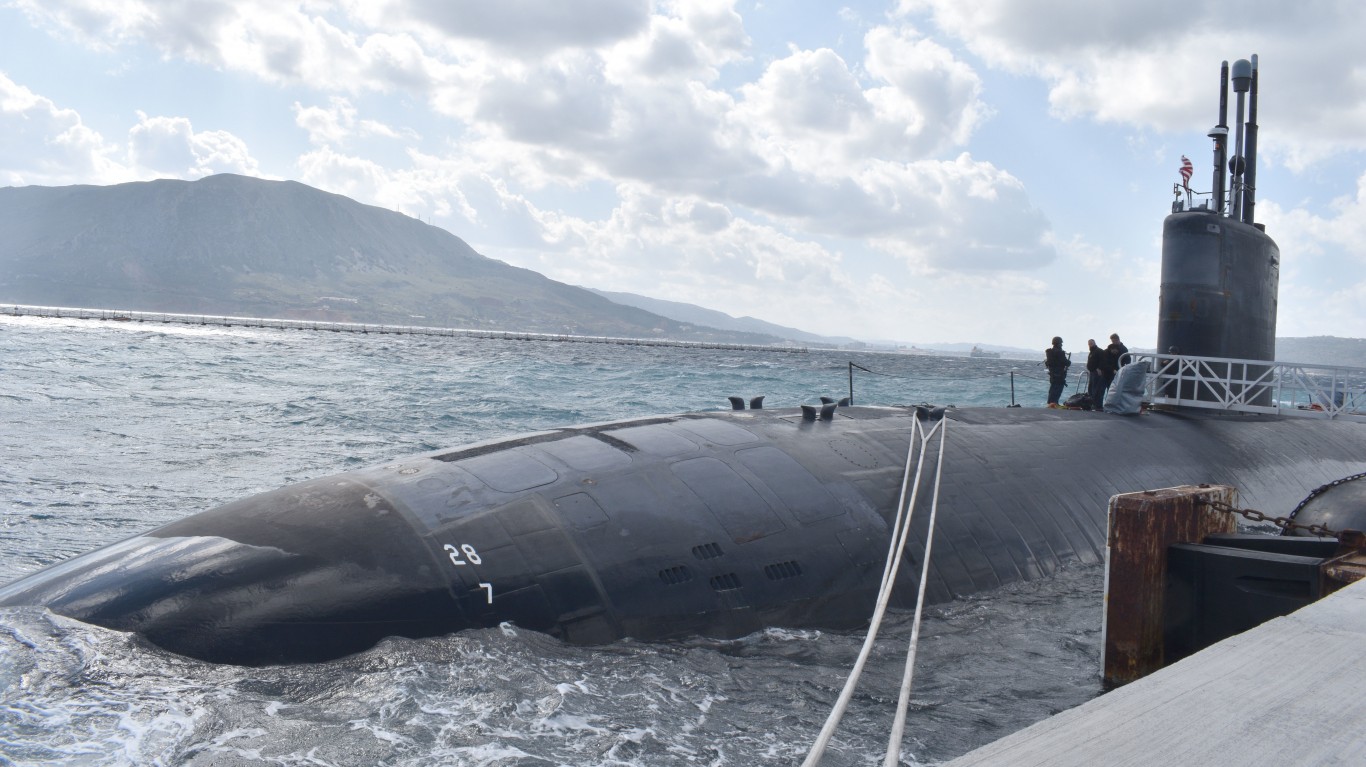
- Commission date: August 6, 1988
- Type: Attack submarine
- Class: Los Angeles-class
21. USS Leyte Gulf (CG-55)
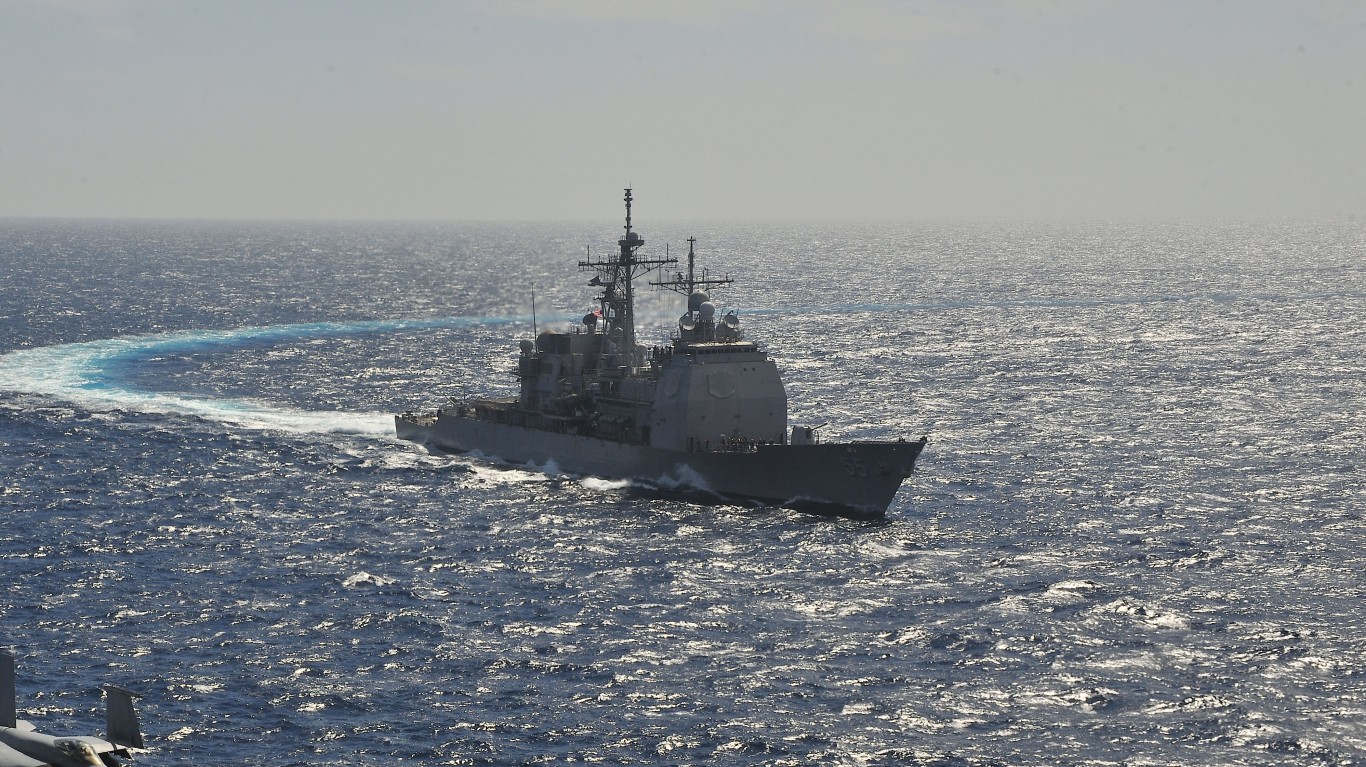
- Commission date: September 26, 1987
- Type: Cruiser
- Class: Ticonderoga-class
20. USS Key West (SSN-722)
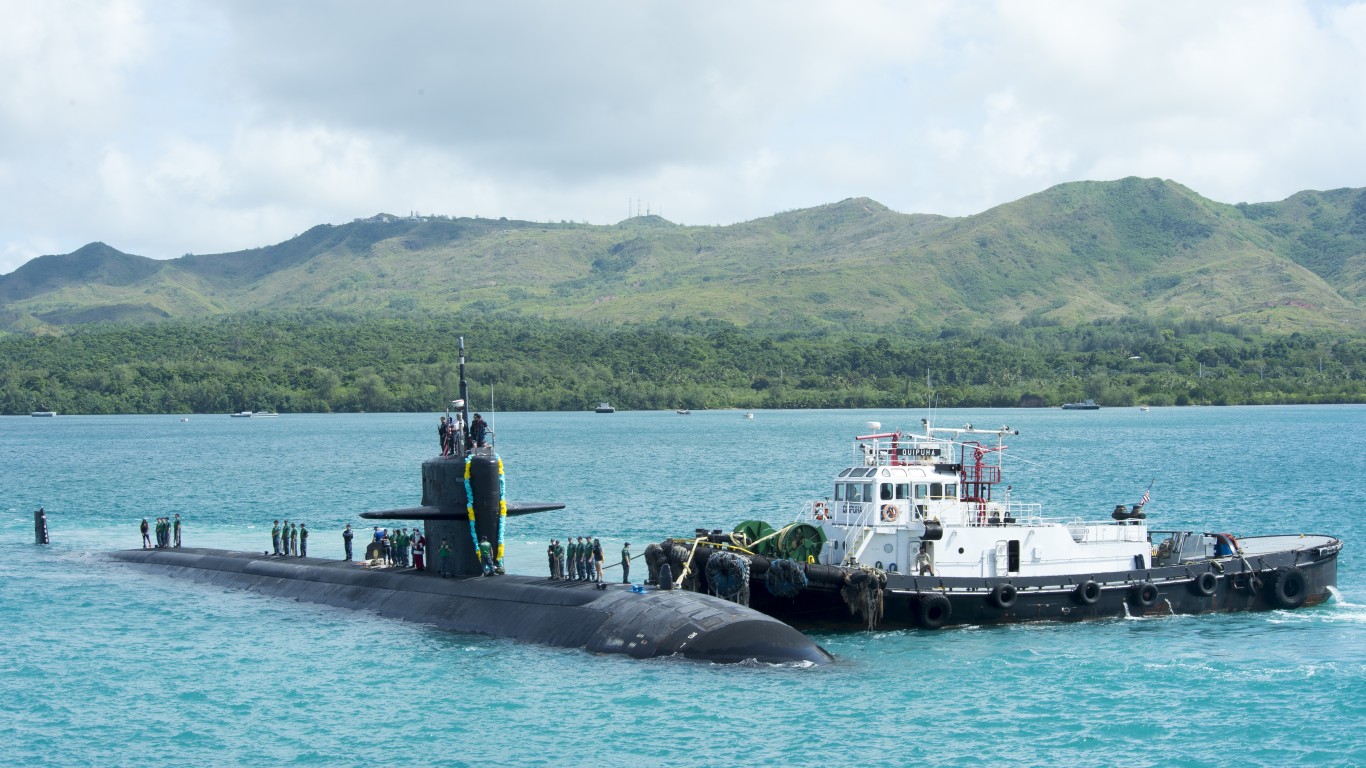
- Commission date: September 12, 1987
- Type: Attack submarine
- Class: Los Angeles-class
19. USS Helena (SSN-725)
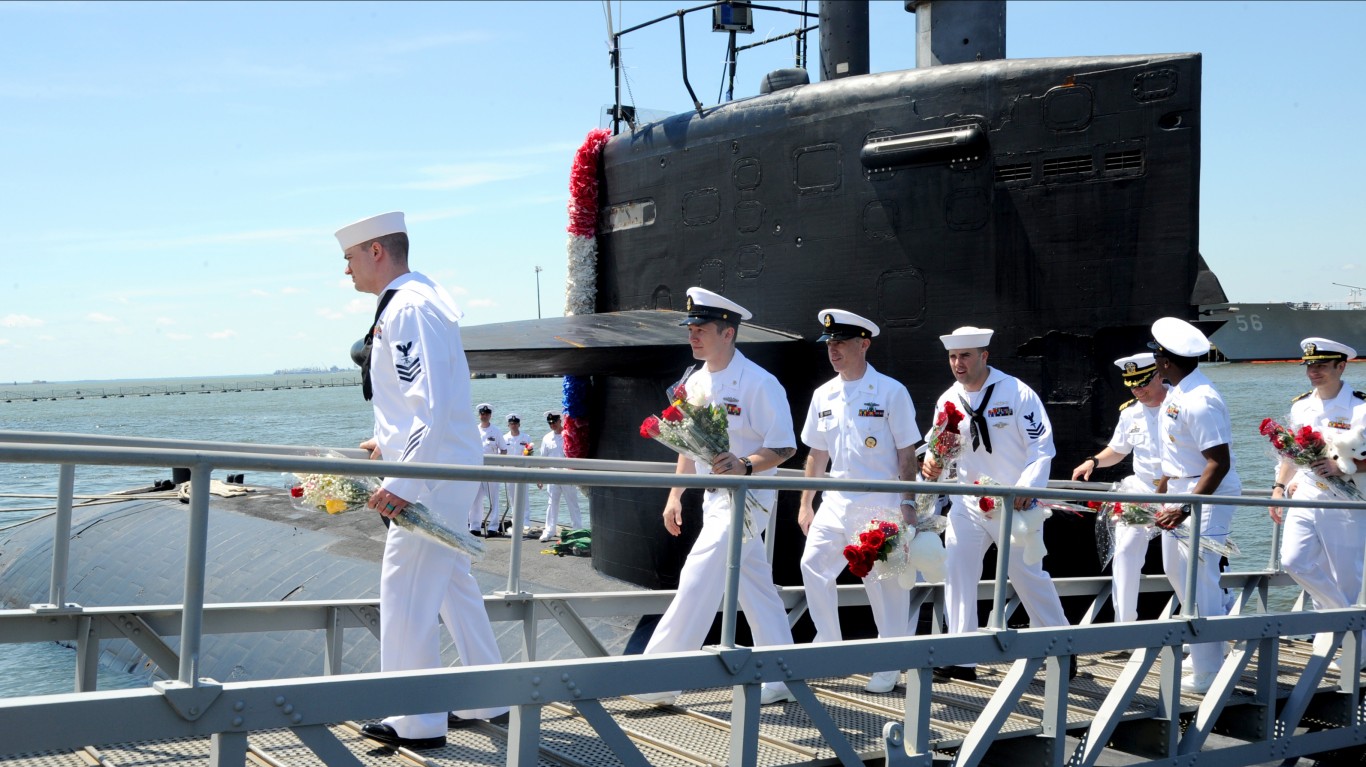
- Commission date: July 11, 1987
- Type: Attack submarine
- Class: Los Angeles-class
18. USS Antietam (CG-54)
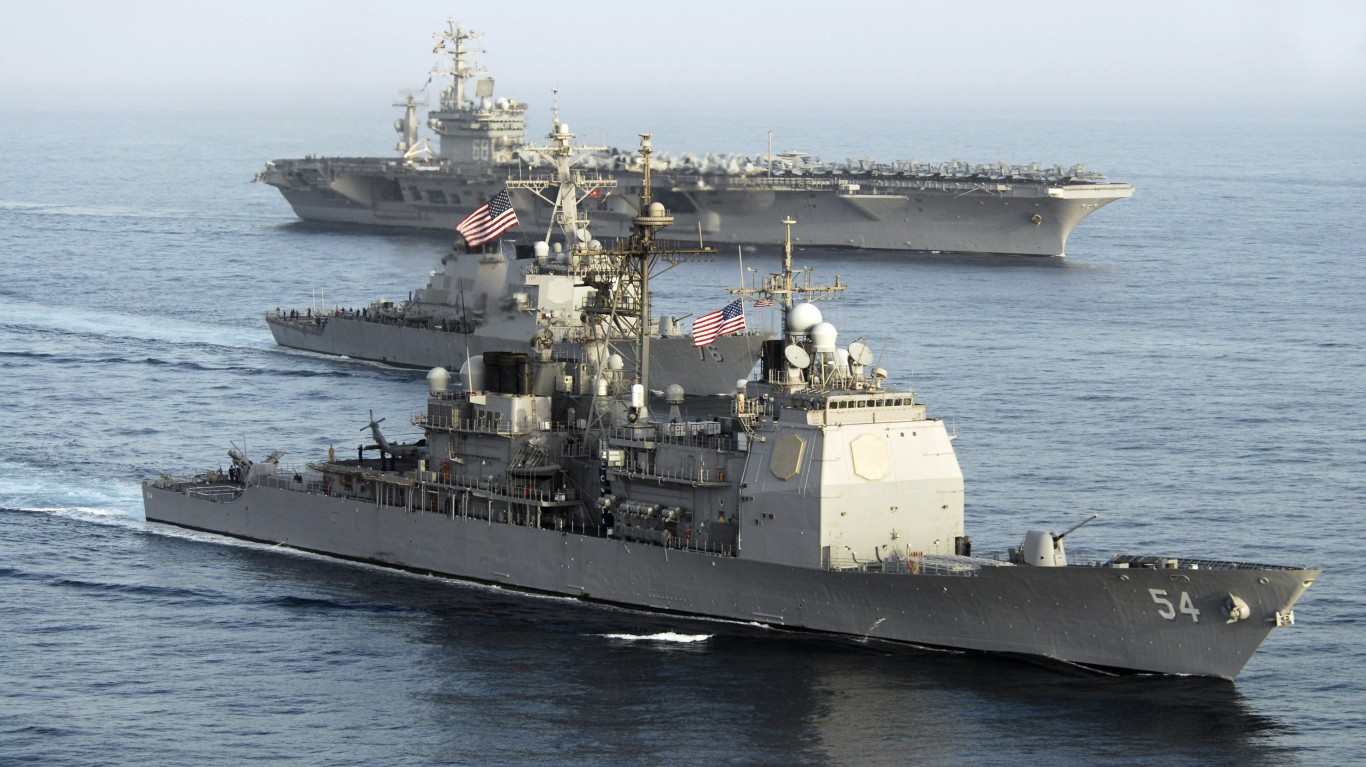
- Commission date: June 6, 1987
- Type: Cruiser
- Class: Ticonderoga-class
17. USS Theodore Roosevelt (CVN-71)

- Commission date: October 25, 1986
- Type: Aircraft carrier
- Class: Nimitz-class
16. USS Nevada (SSBN-733)
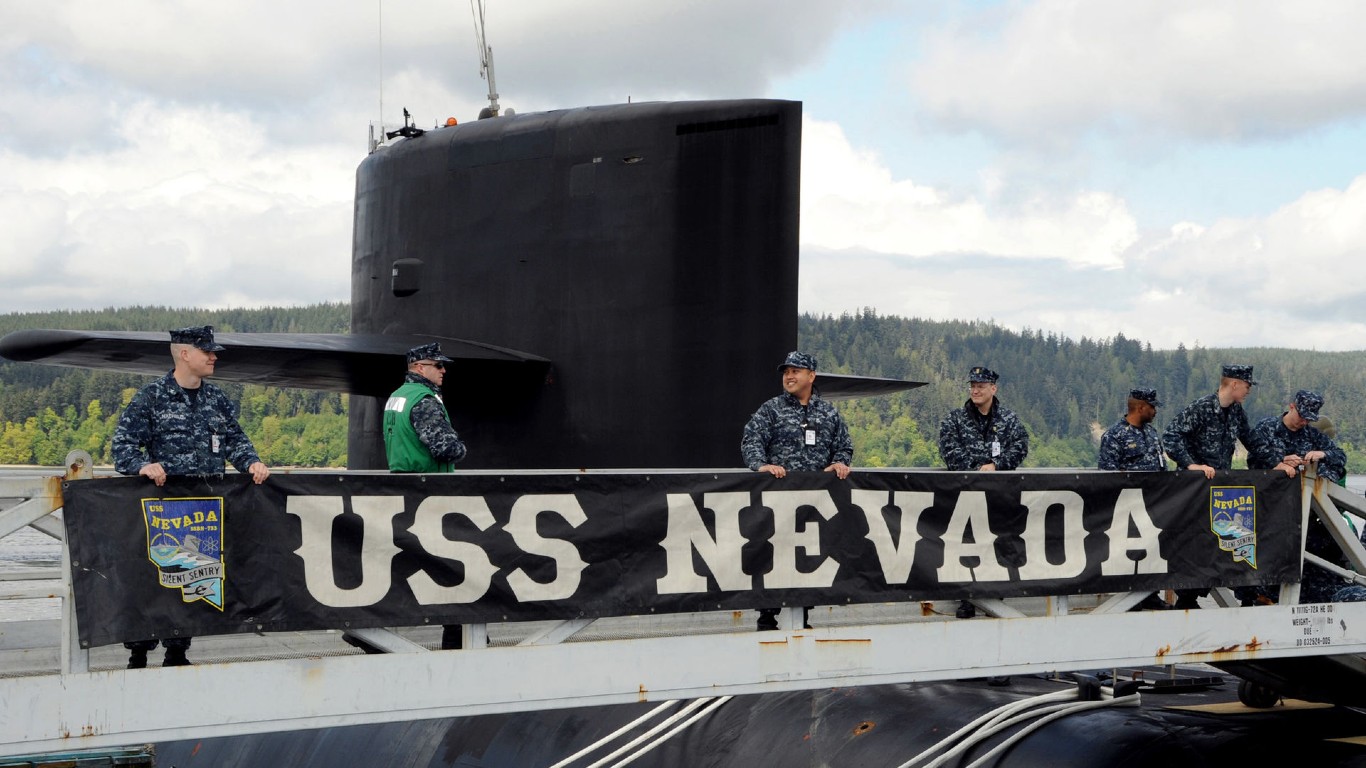
- Commission date: August 16, 1986
- Type: Ballistic missile submarine
- Class: Ohio-class
15. USS Germantown (LSD-42)
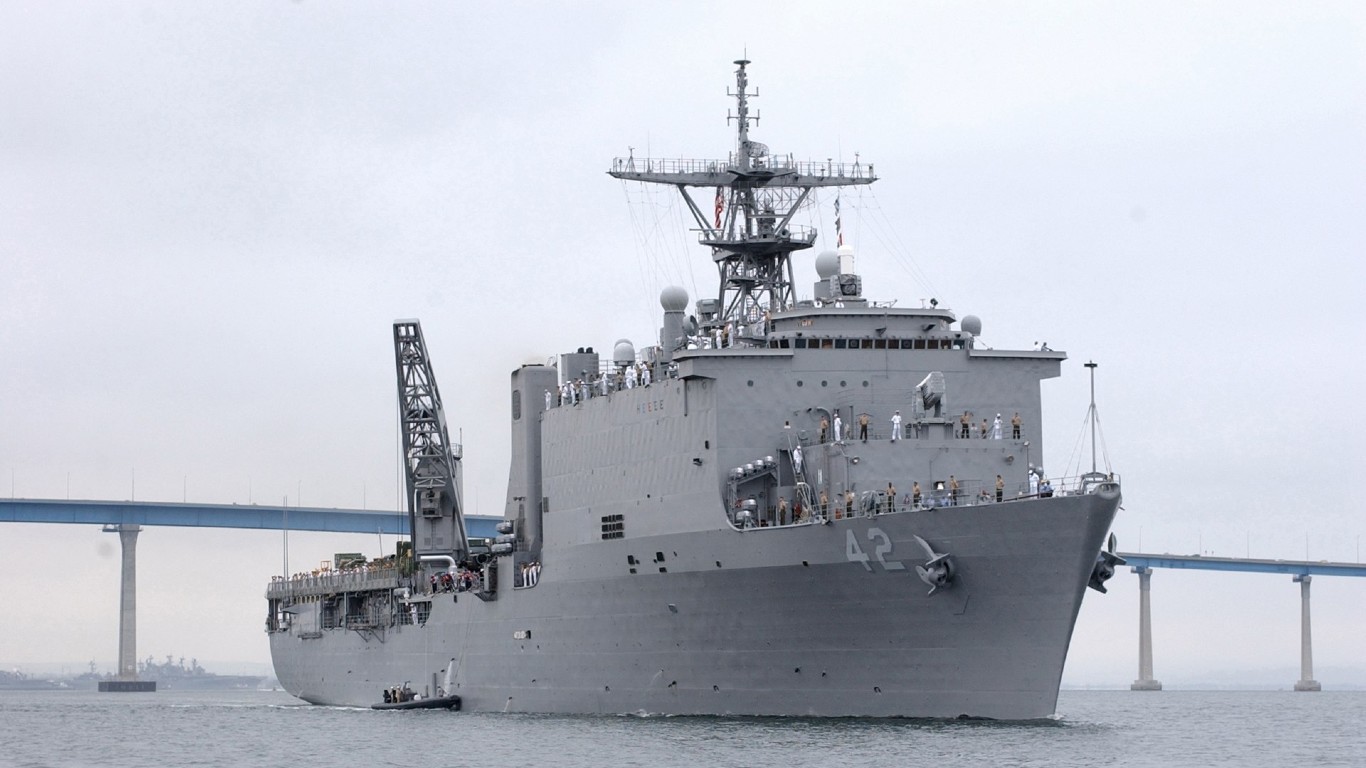
- Commission date: February 8, 1986
- Type: Dock landing ship
- Class: Whidbey Island-class
14. USS Alaska (SSBN-732)
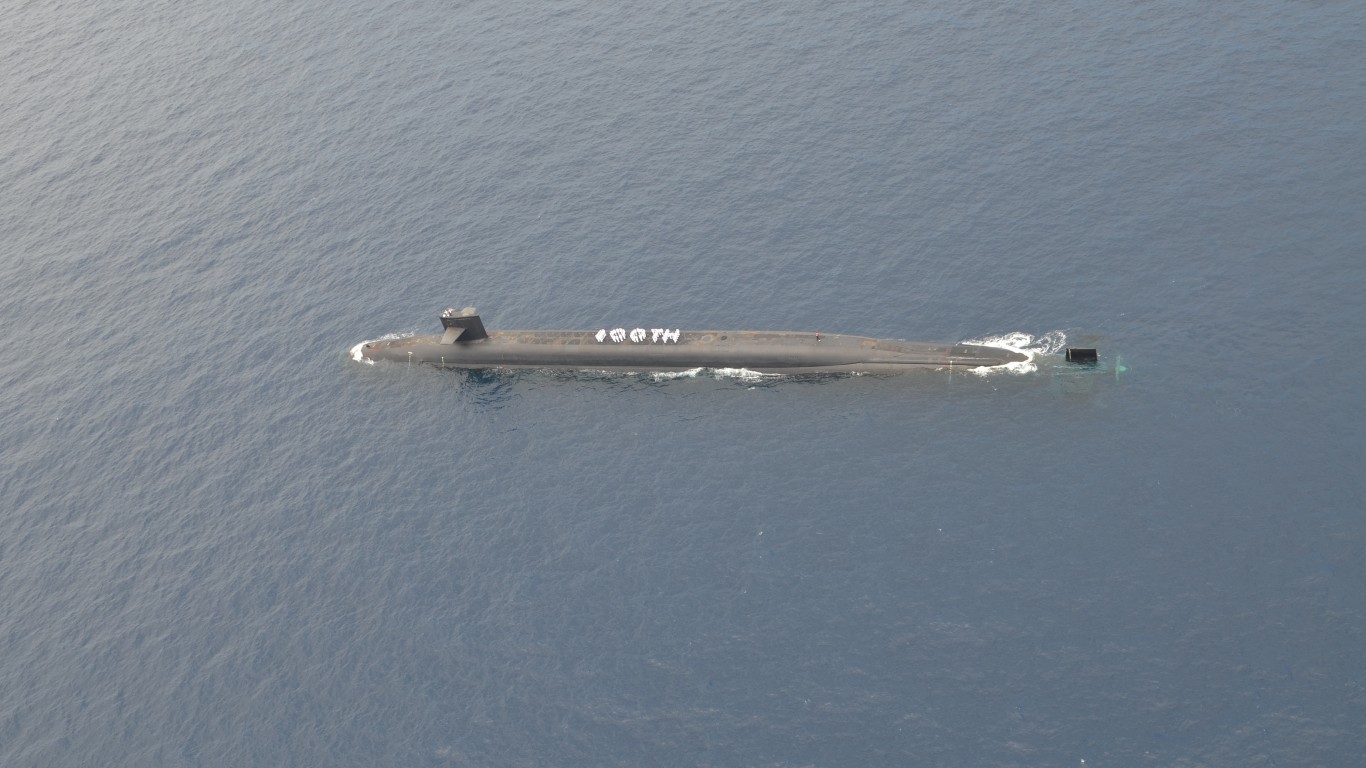
- Commission date: January 25, 1986
- Type: Ballistic missile submarine
- Class: Ohio-class
13. USS Alabama (SSBN-731)
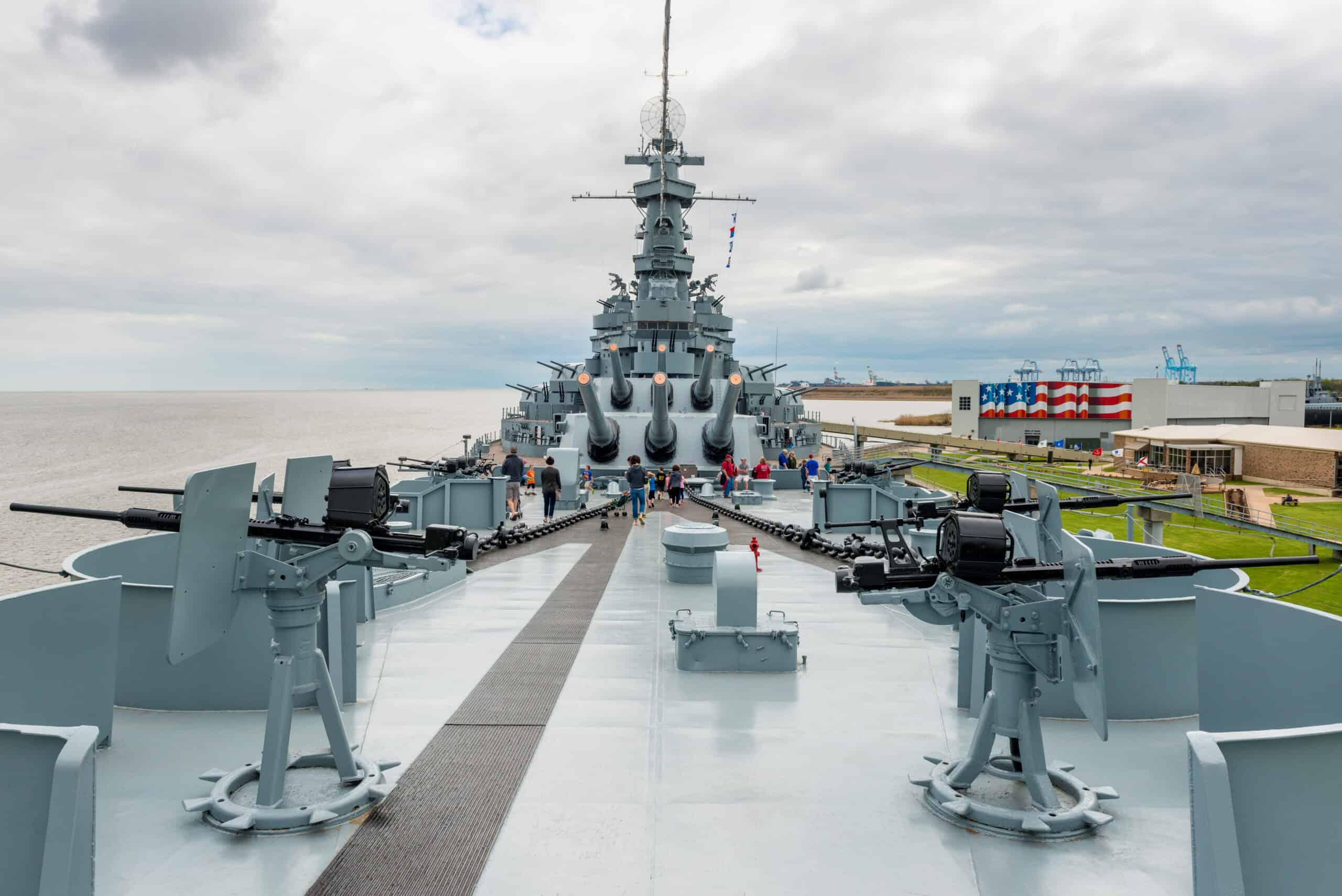
- Commission date: May 25, 1985
- Type: Ballistic missile submarine
- Class: Ohio-class
12. USS Henry M. Jackson (SSBN-730)
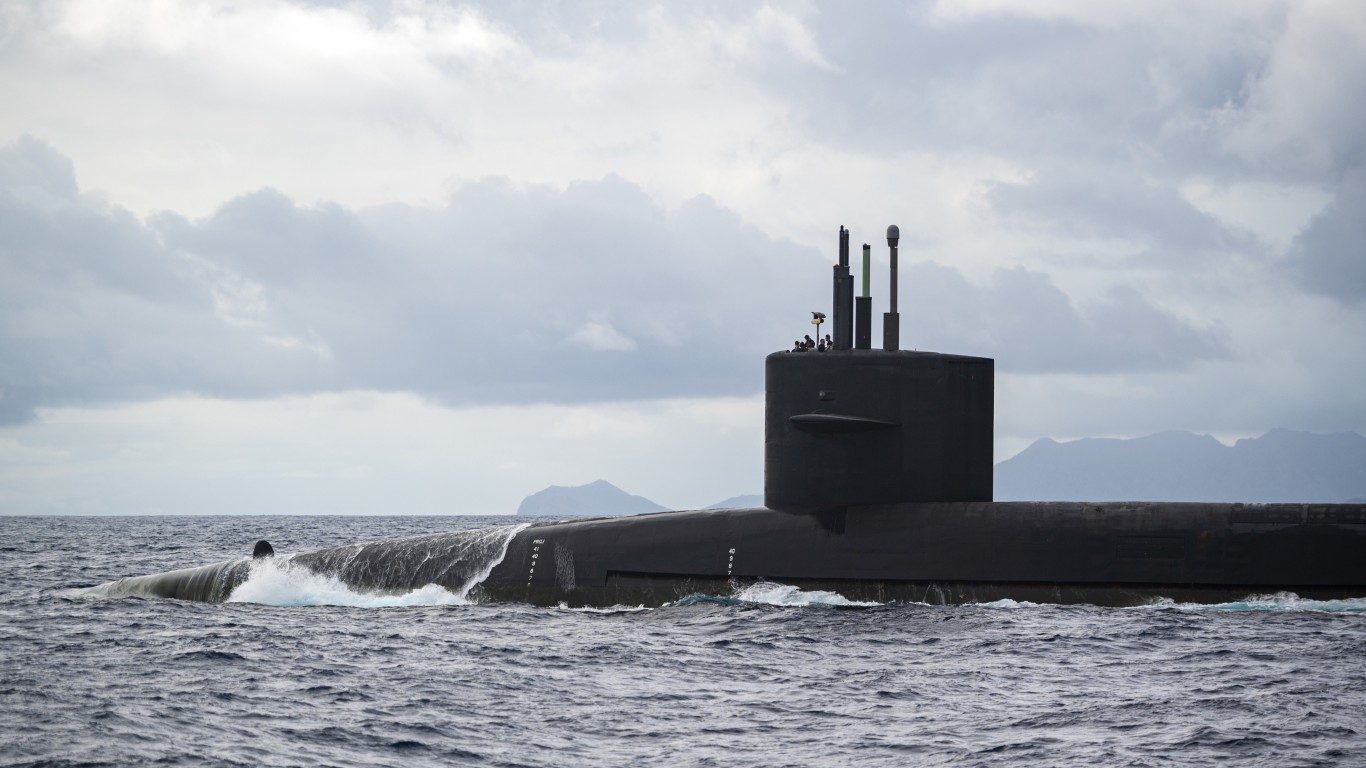
- Commission date: October 6, 1984
- Type: Ballistic missile submarine
- Class: Ohio-class
11. USS Georgia (SSGN-729)
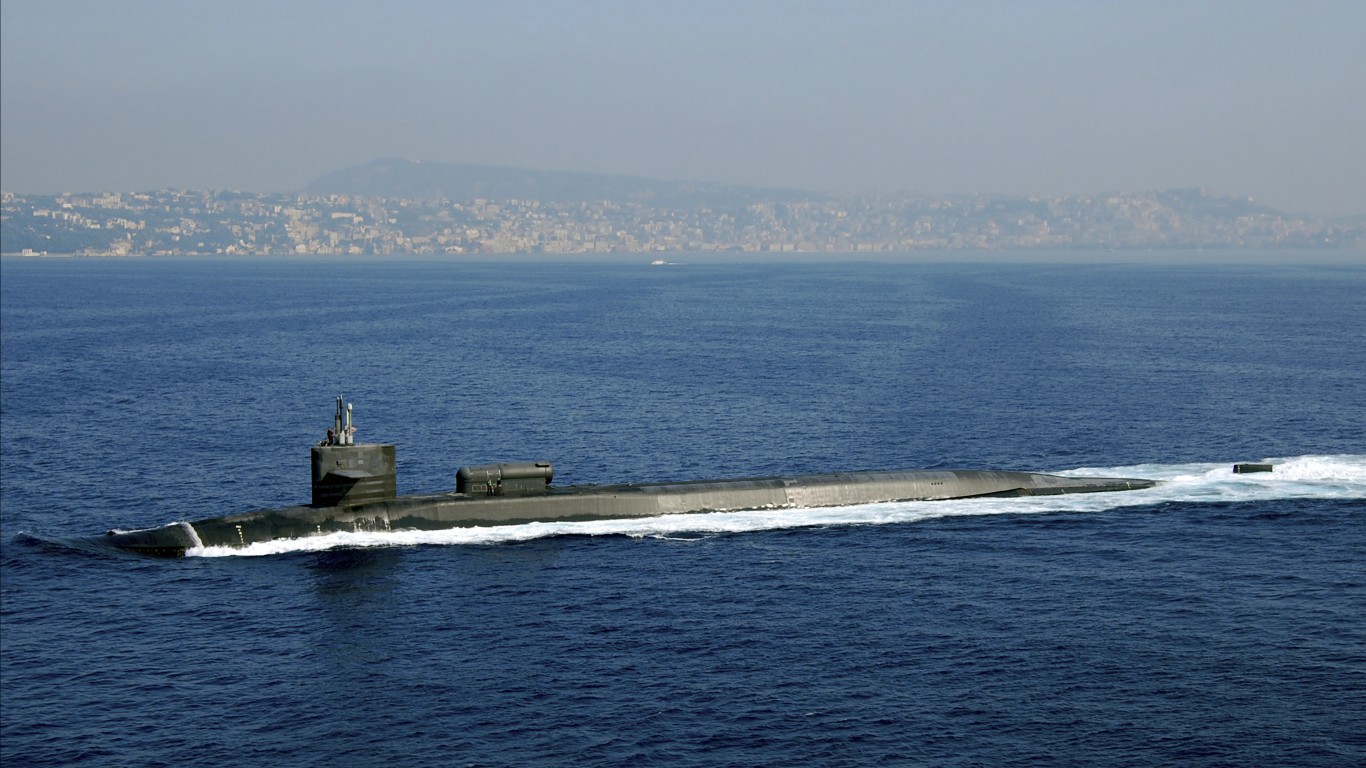
- Commission date: February 11, 1984
- Type: Guided missile submarine
- Class: Ohio-class
10. USS Florida (SSGN-728)
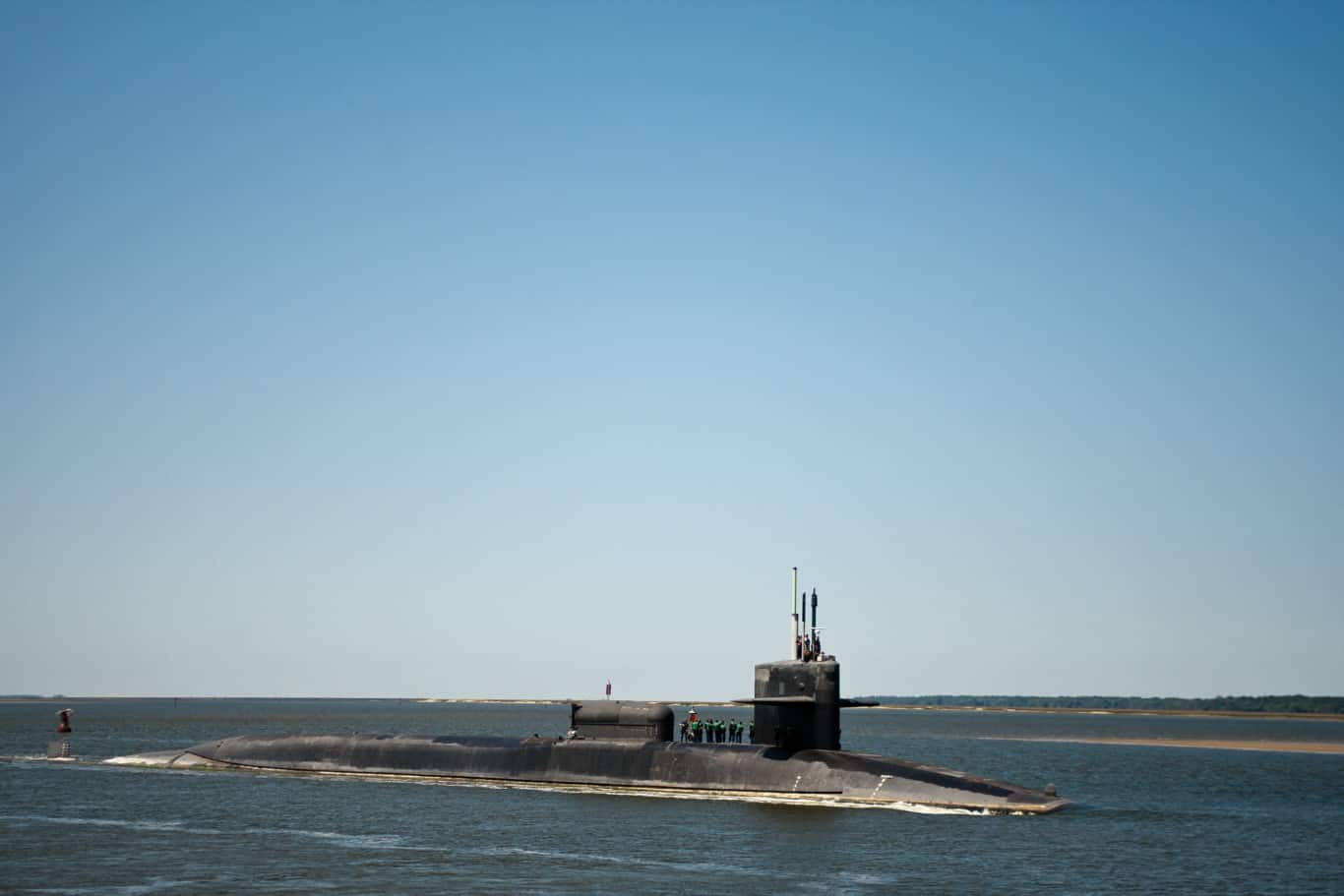
- Commission date: June 18, 1983
- Type: Guided missile submarine
- Class: Ohio-class
9. USS Michigan (SSGN-727)
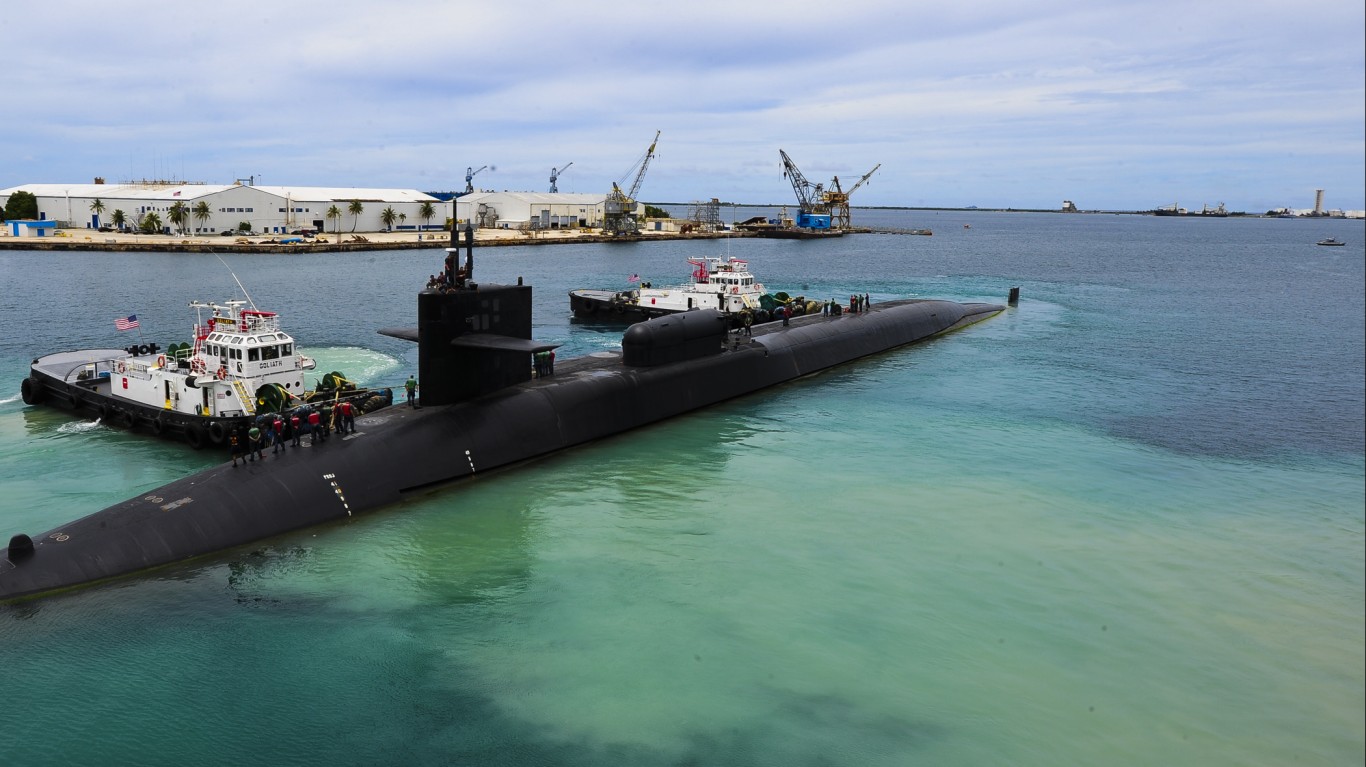
- Commission date: September 11, 1982
- Type: Guided missile submarine
- Class: Ohio-class
8. USS Carl Vinson (CVN-70)
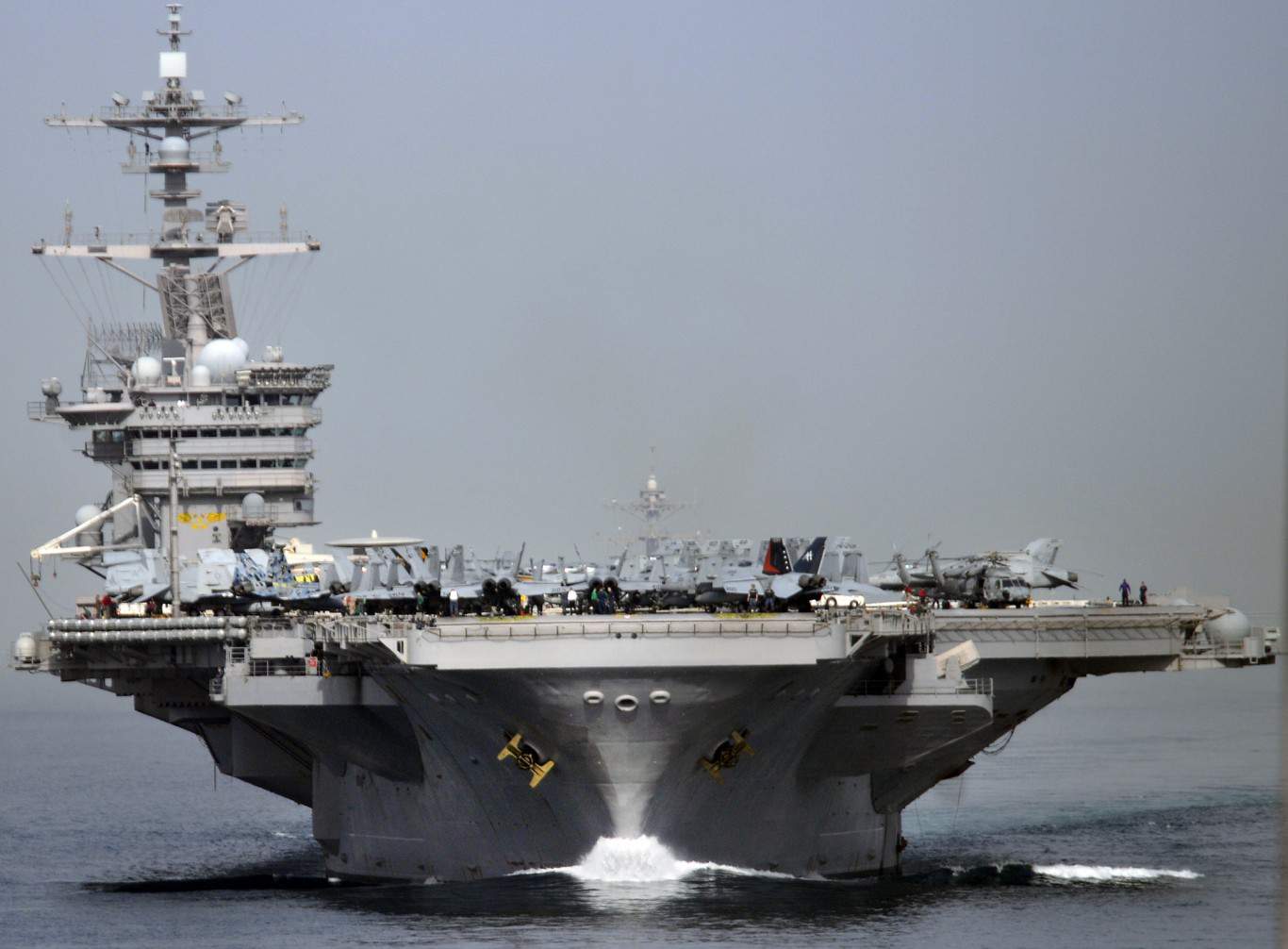
- Commission date: March 13, 1982
- Type: Aircraft carrier
- Class: Nimitz-class
7. USS Ohio (SSGN-726)
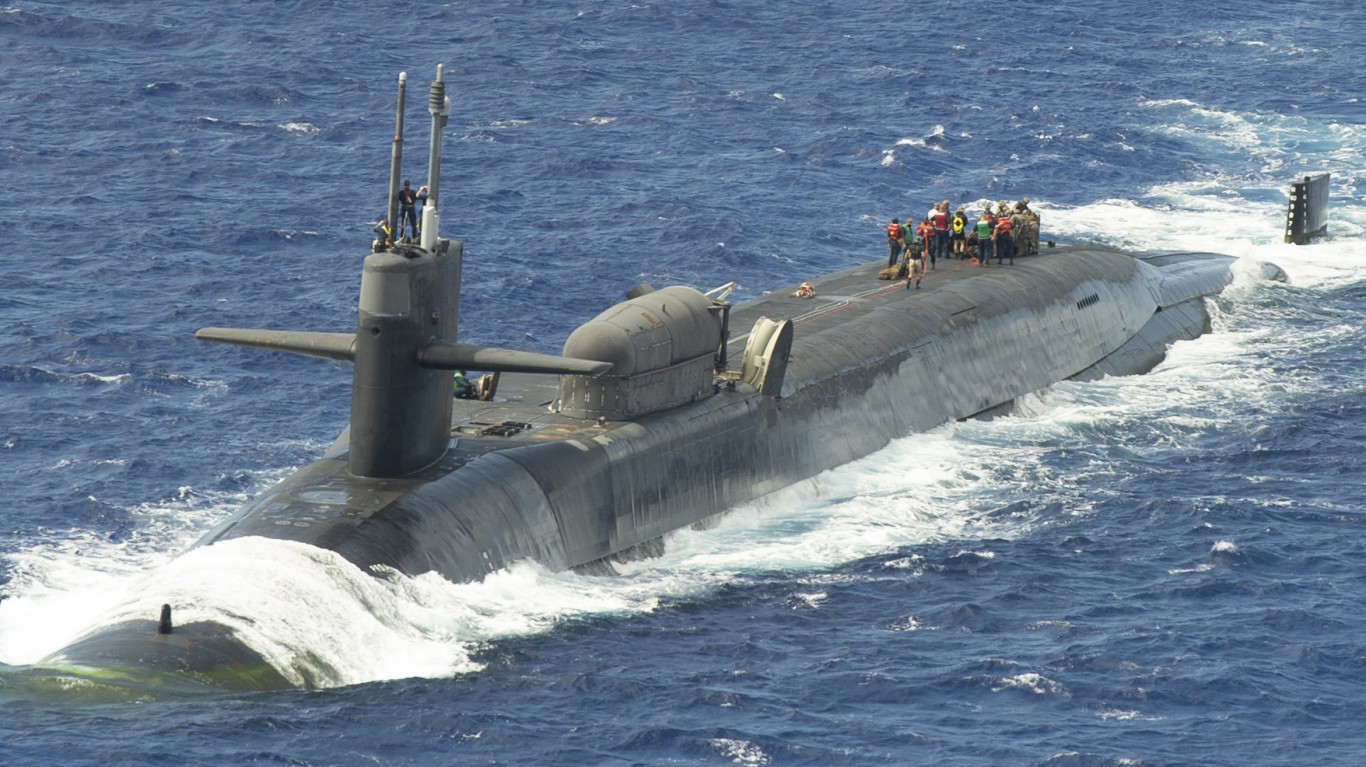
- Commission date: November 11, 1981
- Type: Guided missile submarine
- Class: Ohio-class
6. USS Frank Cable (AS-40)
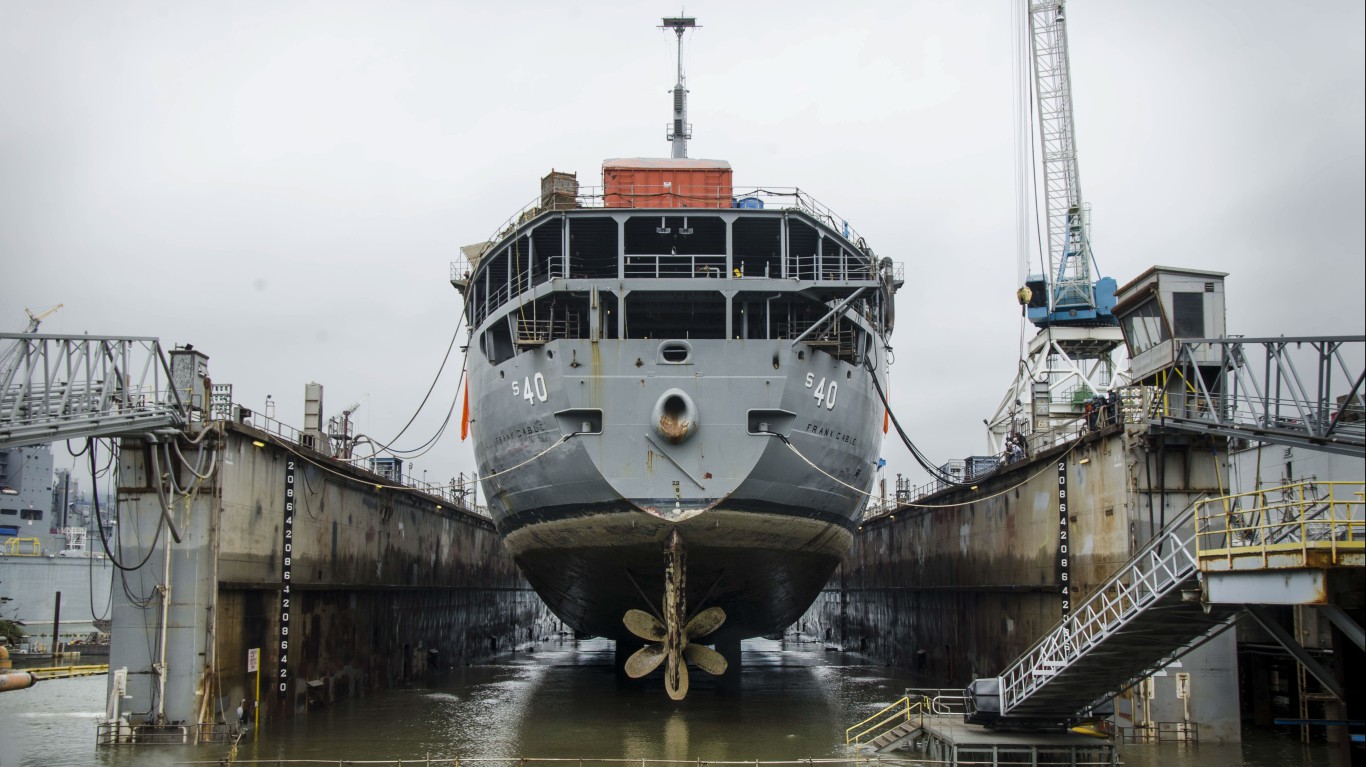
- Commission date: October 29, 1979
- Type: Submarine tender
- Class: Emory S. Land-class
5. USS Emory S. Land (AS-39)
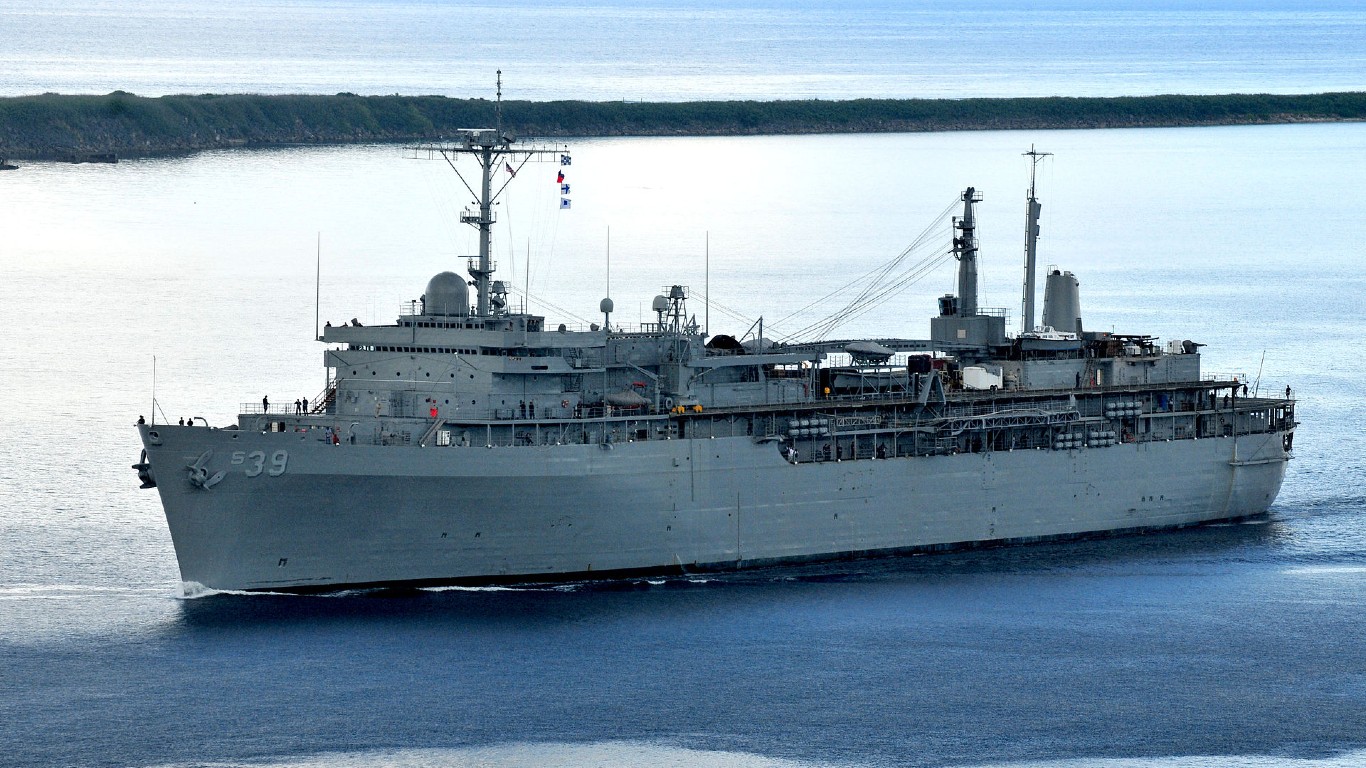
- Commission date: July 7, 1979
- Type: Submarine tender
- Class: Emory S. Land-class
4. USS Dwight D. Eisenhower (CVN-69)
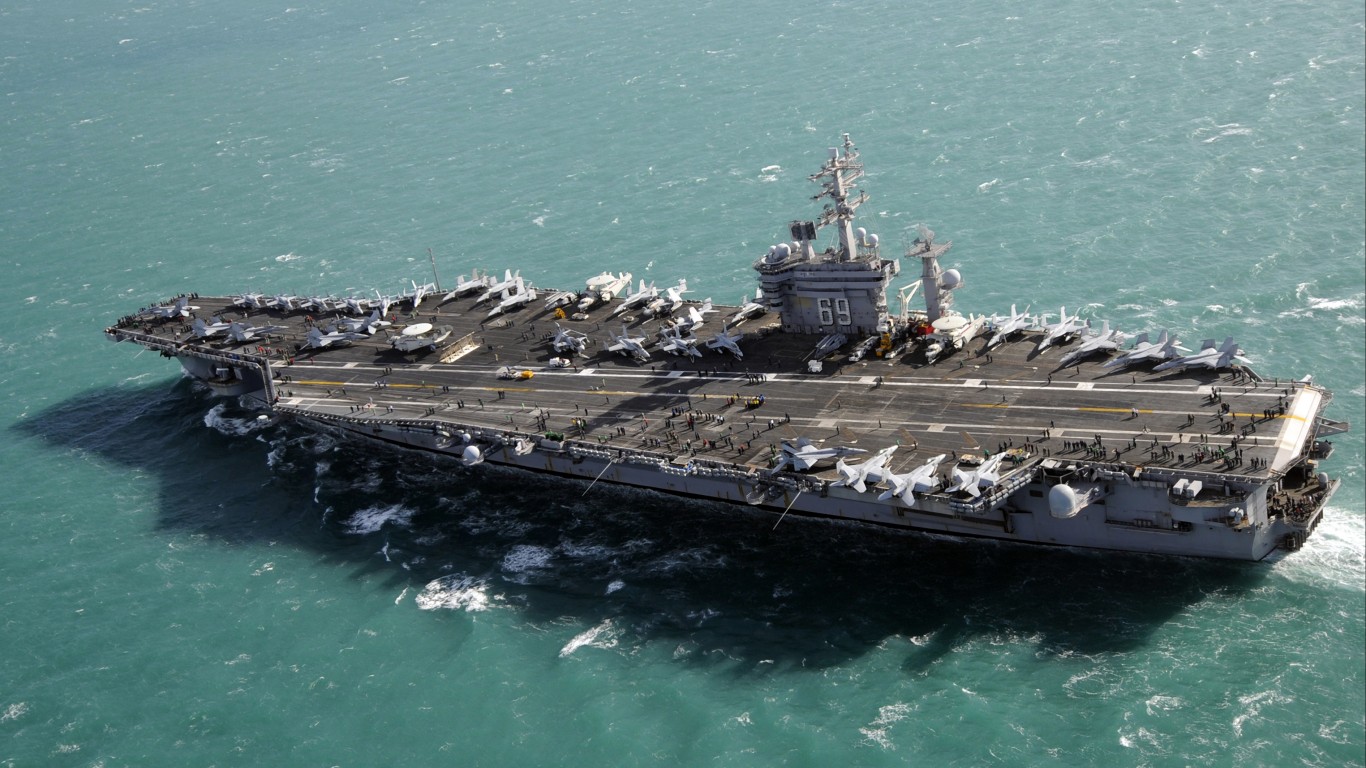
- Commission date: October 18, 1977
- Type: Aircraft carrier
- Class: Nimitz-class
3. USS Nimitz (CVN-68)
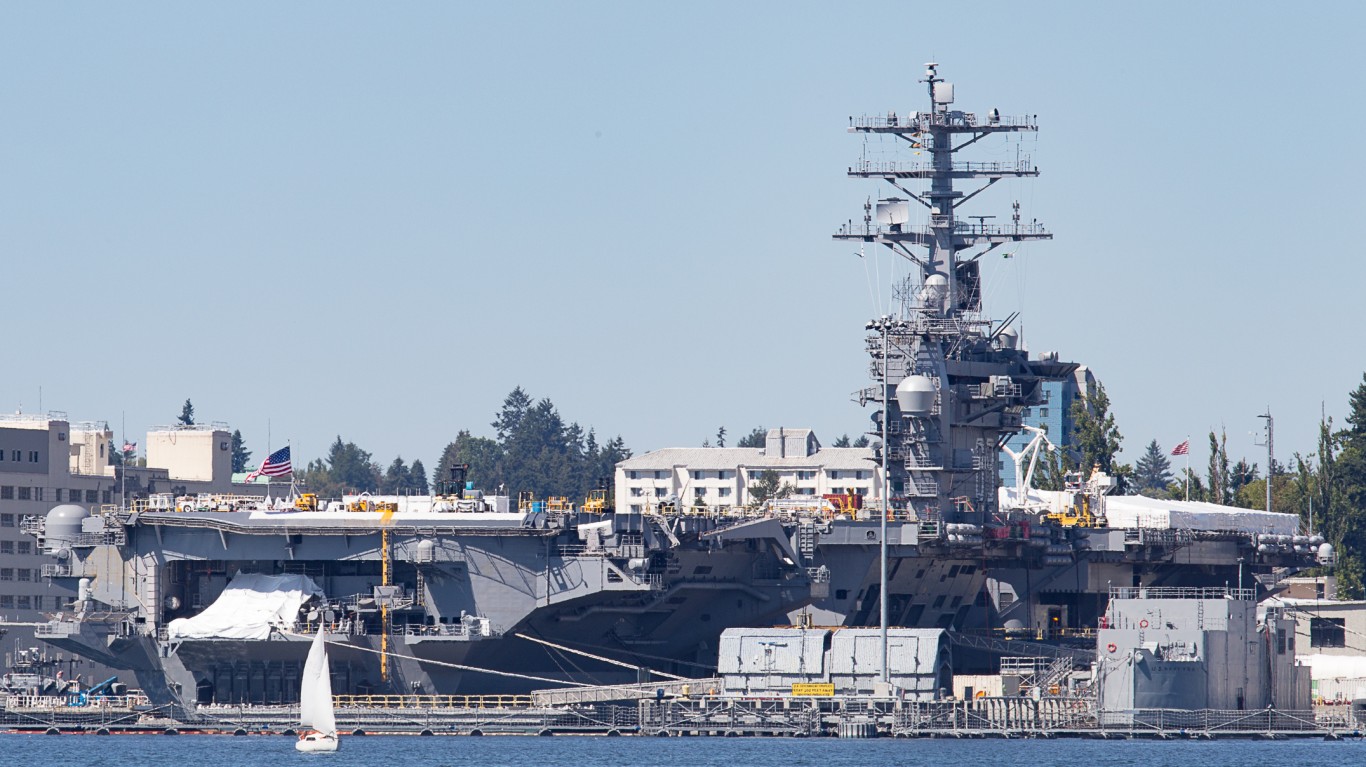
- Commission date: May 3, 1975
- Type: Aircraft carrier
- Class: Nimitz-class
2. USS Mount Whitney (LCC-20)
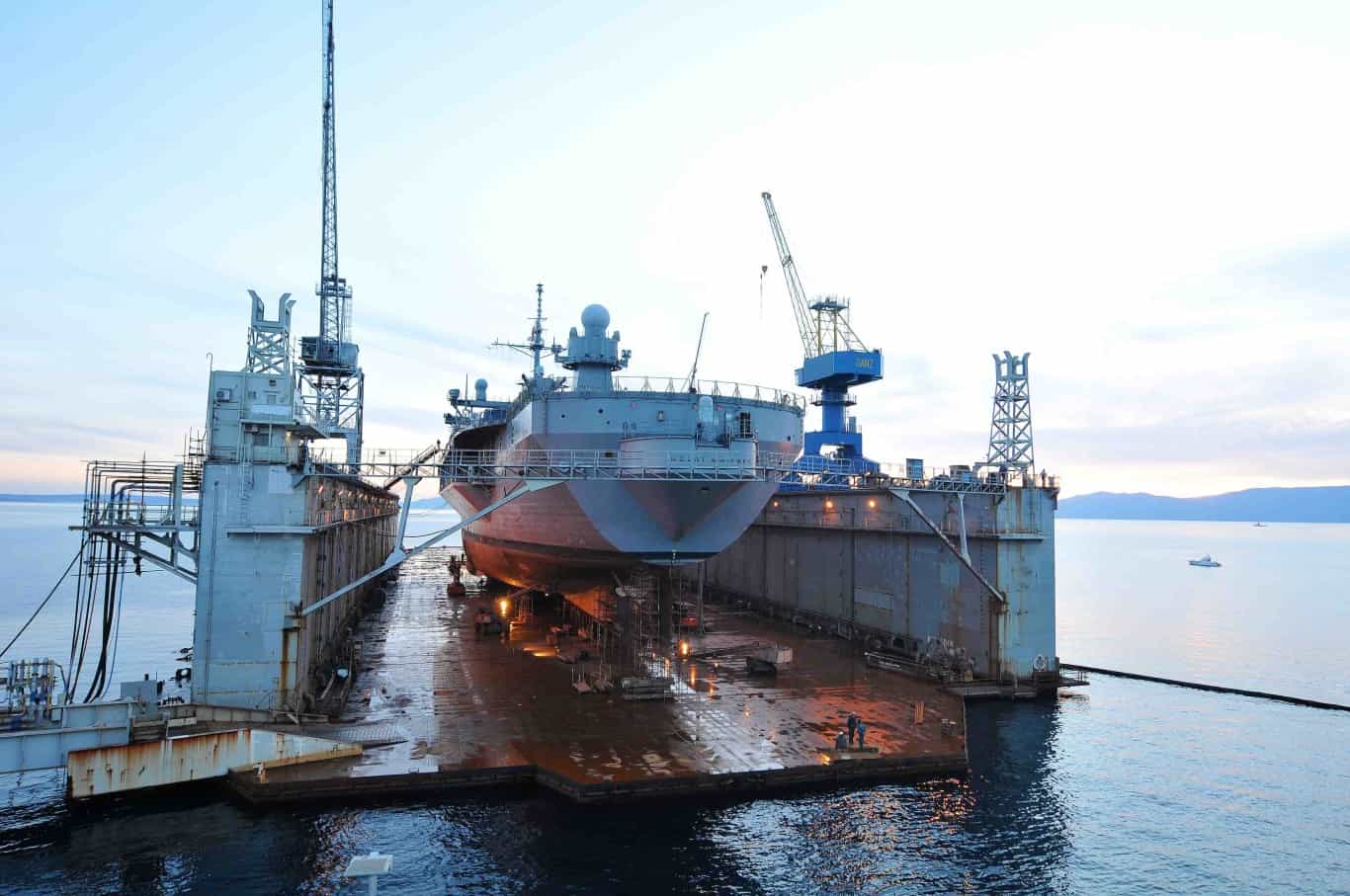
- Commission date: January 16, 1971
- Type: Amphibious command ship
- Class: Blue Ridge-class
1. USS Blue Ridge (LCC-19)
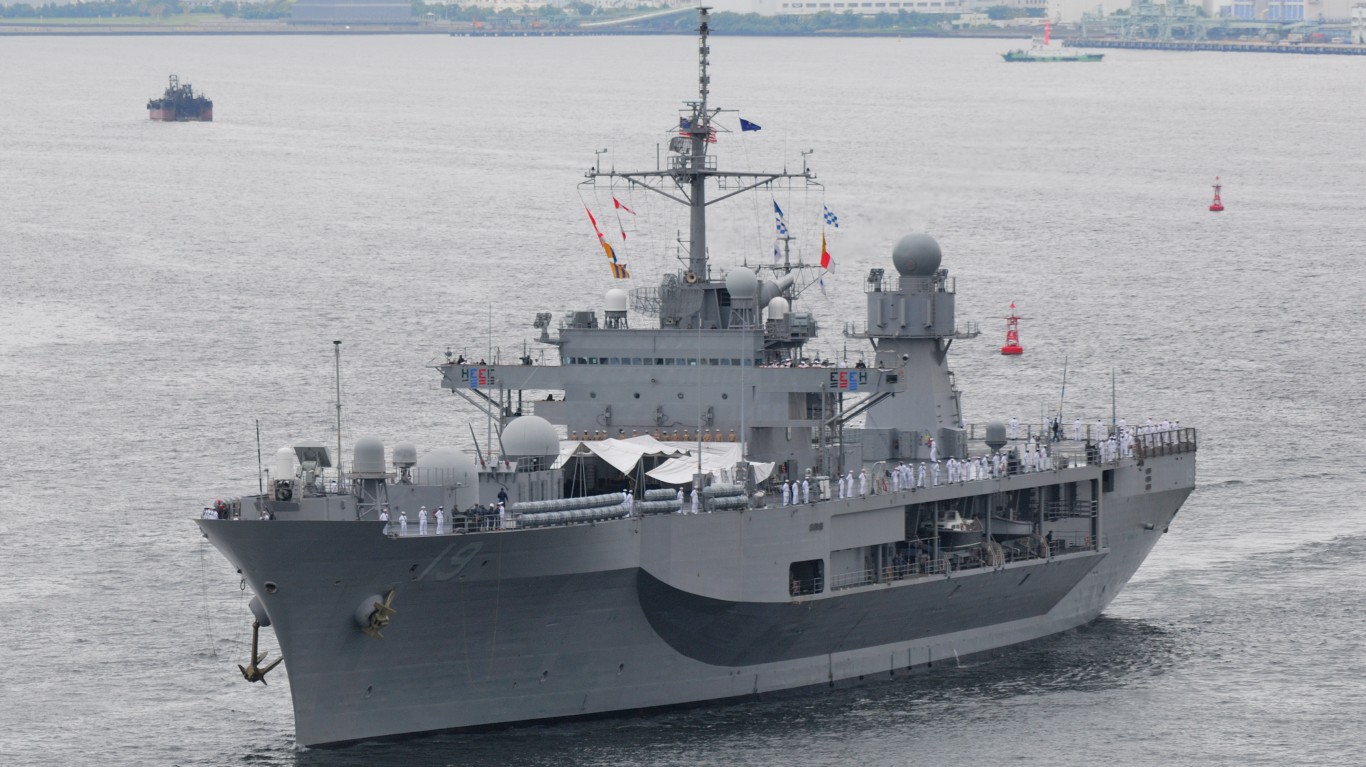
- Commission date: November 14, 1970
- Type: Amphibious command ship
- Class: Blue Ridge-class
Thank you for reading! Have some feedback for us?
Contact the 24/7 Wall St. editorial team.

